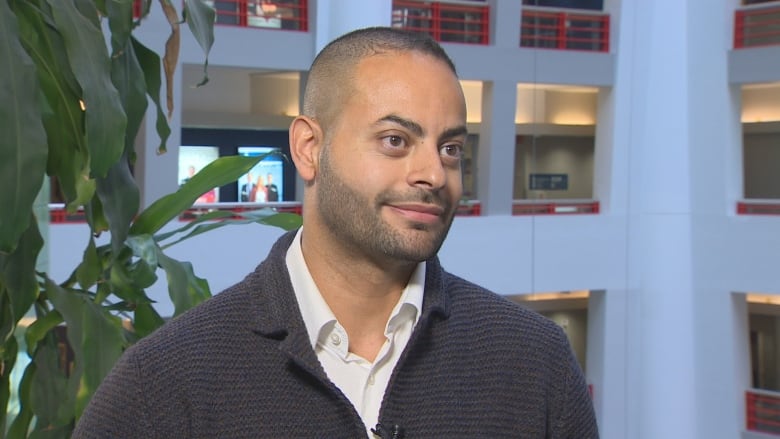A new government directive to the CRTC telling the regulator to focus more on competition, innovation and consumer interest could mean cheaper wireless plans in Canada within two years, says the head of an upstart trying to break into the market.
Navdeep Bains, minister of Innovation, Science and Economic Development, announced the new directive earlier this week during question period. It changes the criteria for the Canadian Radio-television and Telecommunications Commission to consider when issuing decisions.
Previously, the regulator was operating under 2006 guidelines that directed it to consider market forces, investment in networks and facilities-based competition between already established network owners as a priority.
Samer Bishay, president and CEO of Sugar Mobile, which offered wireless plans for as little as $19 a month until it was shut down by the CRTC two years ago, says he believes the change could mean his company could be back offering those types of plans again in 18 months.
“I would think we are aiming for [the fall of] 2020 if no further studies [by the government or regulator] are conducted.” said Bishay.
“In the last two years, we have been busy building systems to not just enable Sugar but anyone else that wants to launch a Sugar-like product,” said Bishay.
Sugar cellphones worked on Wi-Fi then switched to Rogers’s cellular network when Wi-Fi wasn’t available.
Sugar cited a reciprocal agreement that its parent company Iristel had that allowed roaming access. But Sugar never asked for permission. Rogers called that an illegal use of its network, and the CRTC agreed.
Sugar Mobile was — albeit improperly according to the CRTC — operating as a Wi-Fi-first MVNO or Mobile Virtual Network Operator.
MVNOs don’t own their own network. Instead, they buy network space at wholesale rates and resell to consumers at retail prices. MVNOs are widespread and encouraged in other countries, such as the United States and Europe, where mobile data costs are often much cheaper than Canada.

Samer Bishay, president and CEO of Sugar Mobile, says the proposed CRTC changes could have a big impact on the market for consumers. (CBC)
Promotes MVNO competition
In fact, a recent study by the Swedish Analytics firm Tefficient found that Canadian wireless carriers generate more revenue per gigabyte than those of any other country in the world.
MVNOs are not yet able to operate in Canada but experts say that may change under the new directive.
“It is going to promote MVNO competition and that’s really important for developing the lower, more affordable end of the market,” said Dwayne Winseck, director of the Canadian Media Concentration Research Project.
Winseck says allowing MVNOs would open up the market to lower income Canadians who can’t afford wireless access.
“This is really important in Canada because we languish down at the bottom of the OECD [Organization for Economic Co-operation and Development] rankings right alongside Turkey and Mexico in terms of [wireless] adoption levels.”
VMedia, another smaller company that has expressed interest in operating as an MVNO called the new CRTC directive a “breakthrough policy shift.”
In fact, VMedia called for the CRTC to add a consumer focus to its themes in the ISP’s submission last month to the Broadcasting and Telecommunications Legislative Review Panel, which is conducting a review of the legislative framework at the heart of Canada’s telecommunications system.
“Our recommendation, which is fully embodied in the new direction, lay at the core of our submission,” said VMedia’s George Burger in a release, “as no meaningful change to the regulatory framework which would assure fair pricing and excellent services in such an important industry could happen under the shadow of the previous direction.”

Mobile Virtual Network Operators or MVNOs are common in other countries but have yet to gain any traction in the Canadian marketplace largely because of regulatory hurdles. (Henry Romero/Reuters)
“It is gratifying to learn that Minister Bains was on the same wavelength,” he said.
Shifting focus away from big carriers
Perhaps even more significant than the possibility of MVNOs in Canada is the new directive’s shift away from focusing on the big national carriers, says Winseck.
“It looks like they’ve turned the big three national carriers’ priorities upside down. Basically, the whole idea of investment in networks, which is what the big three always focus on. Now, it’s down at the bottom of the list of priorities, he said, well after affordability and consumer interest.
Winseck, citing the Sugar Mobile decision among others, says for years the CRTC has been ignoring hints from the government that it wants the regulator to move towards the policies outlined in the new directive.
“What this directive will do is make sure that the CRTC will stay out of the way of the government’s intentions,” he said.
But Winseck also adds a caveat, tied to the wording of Clause A in the new directive, which states “… the Commission, when relying on regulation, should consider how the measures used can promote competition, affordability, consumer interests and innovation.”
“If we look at Clause A, get rid of all the words between ‘should’ and ‘promote,'” Winseck says. “Those are weasel words, and they really need to be eliminated. Because otherwise the CRTC can simply say, ‘Yeah, we did consider these measures’ and then they can just continue to engage in these obfuscatory practices that they’ve been engaging in.”
“There’s a ton wiggle room in those six words,” Winseck says. “Those six words can undo a mountain of good.”
from Update Trend News https://ift.tt/2Tq3qzO



0 Comments